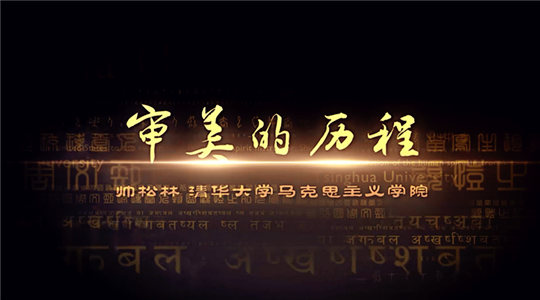
当前课程知识点:大学英语七能拓展 > Chapter 6 研究- How to read and write academic essays? > SUPPLEMENTARY READING > Raw HTML
The Practice of Critical Writing
A. Do’s and Don’ts In crafting a thesis statement, you would not want to make an argument of this sort: Shakespeare‘s Hamlet is a play about a young man who seeks revenge. That doesn‘t say anything–it‘s basically just a summary and is hardly debatable. A better, though not ideal, thesis would be this: Hamlet experiences internal conflict because he is in love with his mother. That is debatable, controversial even. The rest of a paper with this argument as its thesis will be an attempt to show, using specific examples from the text and evidence from scholars, (1) how Hamlet is in love with his mother, (2) why he‘s in love with her, and (3) what implications there are for reading the play in this manner. The reason this thesis isn‘t ideal, however, is that it doesn‘t offer an answer to the ―so what‖ question. Why should anyone care that Hamlet‘s internal conflict is a result of his love for his mother? If you can answer this question, you‘ll have a great thesis. You also want to avoid a thesis statement like this: Spirituality means different things to different people. King Lear, The book of Romans, and Zen and the Art of Motorcycle Maintenance each view the spirit differently. Again, that says nothing that‘s not already self-evident. Why bother writing a paper about that? You‘re not writing an essay to list works that have nothing in common other than a general topic like "spirituality." You want to find certain works or authors that, while they may have several differences, do have some specific, unifying point. That point is your thesis. A better thesis would be this: Lear, Romans, and Zen each view the soul as the center of human personality. 21 Then you prove it, using examples from the texts that show that the soul is the center of personality. Source: Purdue Online Writing Lab (OWL), ―Writing about Literature‖ Handout (http://owl.english.purdue.edu/handouts/general/gl_lit.html)
B. More Do’s and Don’ts A thesis is never a question. Readers of academic essays expect to have questions discussed, explored, or even answered. A question ("Why did communism collapse in Eastern Europe?") is not an argument, and without an argument, a thesis is dead in the water. A thesis is never a list. "For political, economic, social, and cultural reasons, communism collapsed in Eastern Europe" does a good job of "telegraphing" the reader what to expect in the essay—a section about political reasons, a section about economic reasons, a section about social reasons, and a section about cultural reasons. However, political, economic, social and cultural reasons are pretty much the only possible reasons why communism could collapse. This sentence lacks tension and doesn't advance an argument. Everyone knows that politics, economics, and culture are important. A thesis should never be vague, combative, or confrontational. An ineffective thesis would be, "Communism collapsed in Eastern Europe because communism is evil." This is hard to argue (Evil from whose perspective? What does evil mean?), and it is likely to mark you as moralistic and judgmental rather than rational and thorough. It also may spark a defensive reaction from readers sympathetic to communism. If readers strongly disagree with you right off the bat, they may stop reading. An effective thesis has a definable, arguable claim. "While cultural forces contributed to the collapse of communism in Eastern Europe, the disintegration of economies played the key role in driving its decline" is an effective thesis sentence that "telegraphs," so that the reader expects the essay to have a section about cultural forces and another about the disintegration of economies. This thesis makes a definite, arguable claim: that the disintegration of economies played a more important role than cultural forces in defeating communism in Eastern Europe. The reader would react to this statement by thinking, "Perhaps what the author says is true, but I am not convinced. I want to read further to see how the author argues this claim." A thesis should be as clear and specific as possible. Avoid overused, general terms and abstractions. For example, "Communism collapsed in Eastern Europe because of the ruling elite's inability to address the economic concerns of the people" is more powerful than "Communism collapsed due to societal discontent." 22 Source: Writing Center at Harvard, author Maxine Rodburg (http://www.fas.harvard.edu/~wricntr/documents/Thesis.html)
TC. Word Choice and Thesis Writing One of the most common problems with writing good thesis sentences is finding the words or phrases that best capture both the important elements and the significance of the essay's argument. It is not always easy to summarize several paragraphs or several pages into concise key terms that, when combined in one sentence, can effectively describe the argument. But finding the right words offers writers a significant edge in the clarity and organization of their arguments. Concise and appropriate terms will help both the writer and the reader keep track of what the essay will show, and how it will show it. Graders, in particular, like to see clearly stated thesis statements. Let's look at one example: You've been assigned to write an essay that contrasts the river and shore scenes in Mark Twain's Huckleberry Finn. Your first effort at a thesis is this: There are many important river and shore scenes in Huckleberry Finn. The problem with this thesis statement can be put in terms of word choice. The word "important"-like "interesting"-is both overused and vague; it suggests that the author has an opinion but gives very little indication about the framework of that opinion. As a result the sentence gives your reader almost no idea what the essay is going to argue. She knows you're going to talk about river and shore scenes, but not what you're going to say. So you give it another try: The contrasting river and shore scenes in Huckleberry Finn suggest a return to nature. In terms of word choice, this is an improvement in one regard: through a more vivid choice of words-"return to nature"- your reader has a better idea of where the paper is headed. On the other hand, she still does not know how this return to nature is crucial to your understanding of the novel. So, after several more drafts and revisions, you arrive at the following thesis statement: The contrasting river and shore scenes in Mark Twain's Huckleberry Finn suggest that to find American democratic ideals, one should return to nature. This is a strong thesis because it offers a sophisticated argument, and because the key terms it uses to make this argument are clear. By saying that the contrast between the river and shore scenes shows that a return to nature will help recover American democratic ideals creates at least three key terms: the contrast between river and shore scenes, a return to nature, and American democratic ideals. By itself, each key term is merely a topic-an element of the argument but not the argument itself (as we've seen in the first two examples above). The argument, then, becomes clear to the reader through the way in which you combine key terms. In this case, the essay will contrast river and shore scenes to show that they suggest the recovery of American democratic ideals through a return to nature. While one can certainly write a good argument on the river and shore scenes without such clearly 24 defined key terms, it will be easier to follow the construction of the argument by using these or other equally concise terms. In other words, repetition can be good. You can continue to reemphasize the argument by using the key terms in your topic sentences. This kind of repetition can give your paper cohesion. (Whereas repeating the same point over and over again can give your reader narcolepsy.) Source: UNC Writing Center, ―Word Choice/Wordiness‖ Handout http://www.unc.edu/depts/wcweb/handouts/word_choice.html
-1.1 How to introduce yourself in daily communications?
--How to introduce yourself in daily communications?(1)
--How to introduce yourself in daily communications?(2)
--How to introduce yourself in daily communications?(3)
-1.1 How to introduce yourself in daily communications?--作业
-1.2 How to market yourself with a powerful CV?
--How to market yourself with a powerful CV?(1)
--How to market yourself with a powerful CV?(2)
-1.2 How to market yourself with a powerful CV?--作业
-1.3 Case study: at the job interview
--Case study: at the job interview
-1.3 Case study: at the job interview--作业
-SUPPLEMENTARY READING
--Raw HTML
--Curriculum Vitae (CV) Samples and Writing Tips
-DISCUSSION
-2.1 What is a story?
-2.1 What is a story?--作业
-2.2 Types of story
-2.2 Types of story--作业
-2.3 How to make a story?
-2.3 How to make a story?--作业
-2.4 How to appreciate a story? — Case Study
--How to appreciate a story? — Case Study(1)
--How to appreciate a story? — Case Study(2)
-2.4 How to appreciate a story? — Case Study--作业
-SUPPLEMENTARY READING
--html
--html
--白象似的群山
-DISCUSSION
-3.1 What is an argument for?
-3.1 What is an argument for?--作业
-3.2 What is debate for?
-3.2 What is debate for?--作业
-3.3 How to be a good debater?
--How to be a good debater?(1)
--How to be a good debater?(2)
--How to be a good debater?(3)
-3.3 How to be a good debater?--作业
-SUPPLEMENTARY READING
--html
--html
-DISCUSSION
--html
-4.1 What is public speaking?
-4.1 What is public speaking?--作业
-4.2 Making preparation
-4.2 Making preparation--作业
-4.3How to make effective public speaking?
--How to make effective public speaking?(1)
--How to make effective public speaking?(2)
--How to make effective public speaking?(3)
-4.3How to make effective public speaking?--作业
-4.4 Case Study (Speech/TED)
--html
-4.4 Case Study (Speech/TED)--作业
-SUPPLEMENTARY READING
--html
-DISCUSSION
--html
-5.1 Strategic Points for Listening to a Lecture
--Strategic Points for Listening to a Lecture(1)
--Strategic Points for Listening to a Lecture(2)
--Strategic Points for Listening to a Lecture(3)
-5.1 Strategic Points for Listening to a Lecture--作业
-5.2 Why should You Take Lecture Notes
--Why should You Take Lecture Notes
-5.2 Why should You Take Lecture Notes--作业
-5.3 Trying Cornell Method of Note-taking
--Trying Cornell Method of Note-taking(1)
--Trying Cornell Method of Note-taking(2)
--Trying Cornell Method of Note-taking(3)
-5.3 Trying Cornell Method of Note-taking--作业
-5.4 Trying Mind Map
-5.4 Trying Mind Map--作业
-5.5 Trying Thinking Map
-5.5 Trying Thinking Map--作业
-SUPPLEMENTARY READING
--html
-DISCUSSION
--html
-6.1 How to think independently?
--How to think independently?(1)
--How to think independently?(2)
--How to think independently?(3)
-6.1 How to think independently?--作业
-6.2 What is Academic Essay?
-6.2 What is Academic Essay?--作业
-6.3 Tips in Reading and Writing Academic Essays
--Tips in Reading and Writing Academic Essays(1)
--Tips in Reading and Writing Academic Essays(2)
--Tips in Reading and Writing Academic Essays(3)
--Tips in Reading and Writing Academic Essays(4)
--Tips in Reading and Writing Academic Essays(5)
--Tips in Reading and Writing Academic Essays(6)
-6.3 Tips in Reading and Writing Academic Essays--作业
-SUPPLEMENTARY READING
--Raw HTML
--Raw HTML
-DISCUSSION
--html
-7.1 一带一路与中国文化自信 The Belt and Road Initiative and Confidence in Chinese Culture
--7.1 一带一路与中国文化自信 The Belt and Road Initiative and Confidence in Chinese Culture
--7.2 Xi Jinping: The Governance of China(II)
-We






